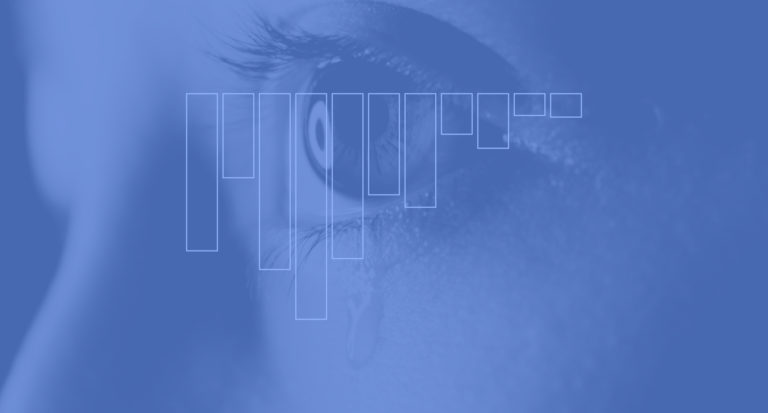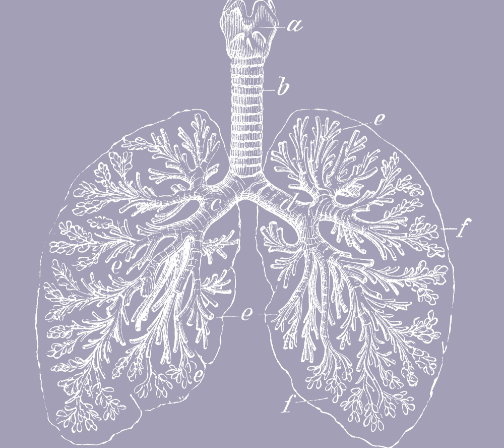


Subscribe
Data delivered to your inbox. Keep up with the latest developments.Lockdown has led to an increase in violence against women and children.
This story was originally published on Premium Times Nigeria, as written by Ejiro Umukoro.
Twenty-two-year-old Halima Bulama had just returned from the marriage ceremony of her relation mid-April in Kasaisa community in Damaturu, Yobe State, in northeast Nigeria when her husband, 22-year-old Ba’ari Abacha, in a fit of rage attacked her.
Mr Abacha said his wife disobeyed him in attending the ceremony, and as punishment hacked off the woman’s right hand with a machete, according to the police.
At the teaching hospital in Damaturu where she was taken to for treatment, Halima said her husband was quick-tempered and vowed not return to her husband in Kasaisa, one of hundreds of vulnerable communities in this Boko Haram-plagued region. “If he can cut off my hand then he can easily kill me,” she said.
The suspect, a nomad, told police he acted because of his wife’s “immoral disobedience to marital ethics.”
“She has been travelling without my permission. But as matter of fact, it was out of anger I did this. I regretted my action,” he said in the local Kanuri language at the police station.
Such attacks are common in Nigeria where violence against women remains a problem despite growing campaign against it. But recent lockdowns imposed by the federal and states governments across the country to curtail the spread of coronavirus, has caused a spike in incidents that target women and children, activists say. This is because the restrictions have forced vulnerable persons to stay more closely to their attackers.

Abiola
Akiode-Afolabi, who is the director of Lagos-based Women Advocates Research and Documentation Centre, said since the lockdown started, the most common gender-based violence reports recorded by her organisation have been spousal violence, landlord-tenant violence, neighbour-to-neighbour violence, and parent-children abuse. Others are homeowner-house help violence, boyfriend-girlfriend violence, violence on widows, police-sex worker violence, police-citizen violence, visitor-caught-in-lock-down child rape.
The Lagos State government-run Domestic and Gender Violence Response Team said it has been inundated with increased reports of sexual and domestic violence since the lockdown started late March. Most states have since relaxed the restrictions but many offices and schools have yet to fully reopen
The Lagos team, set up to carry out physical interventions, has moved online, using phones, social media, 24/7 web chat to reach people in abusive situations who need help. In exceptional cases, the team goes out to rescue children who may have been abused, and women who need assistance in abusive relationships.
Titilola Vivour-Adeniyi, who leads the team, said at the peak of the lockdown in Lagos, the group on average received 13 new cases daily. In March alone, it received 390 reports.
Mrs Vivour-Adeniyi said there has been 60 per cent increase in domestic violence, 30 per cent rise in sexual violence, and 10 per cent increase in physical child abuse.
Lagos government-run Domestic and Gender Violence Response Team reports 60 per cent increase in domestic violence, 30 per cent rise in sexual violence, and 10 per cent increase in physical child abuse.
Global problem
The European Institute for Gender Equality says although women and men experience gender-based violence, the majority of victims are women and girls. The United Nations recently raised an alarm regarding the increase in reported cases of domestic and gender-based violence, directly attributed to forced proximity occasioned by lockdowns.
“Even before COVID-19 existed, domestic violence was already one of the greatest human rights violations. In the previous 12 months, 243 million women and girls (aged 15-49) across the world have been subjected to sexual or physical violence by an intimate partner,” said Phumzile Mlambo-Ngcuka, Executive Director of UN Women in April.
“As the COVID-19 pandemic continues, this number is likely to grow with multiple impacts on women’s wellbeing, their sexual and reproductive health, their mental health, and their ability to participate and lead in the recovery of our societies and economy.”
A study commissioned by Nigeria’s ministry of women’s affairs and social development and the UNited Nations Population Fund (UNPFA) Nigeria, with support from the Norwegian Government, found that 28 per cent of Nigerian women aged 25-29 have experienced some form of physical violence since age 15. The study also reported that 15 per cent of women experienced physical violence within 12 months, while 25 per cent of married women or those living with their spouses have experienced violence.
READ ALSO: Ekiti PDP Crisis: Police unable to identify hoodlums who attacked secretariat
The most common acts of violence against women in Nigeria include sexual harassment, physical violence, harmful traditional practices, emotional and psychological violence, socio-economic violence, and violence against non-combatant women in conflict situations.
Victims of these incidents face additional challenge with the lack of structural social service systems in place in Nigeria, access to hotlines and shelters. Also, civil society groups and nongovernment organisations specialised in providing support and legal expertise are few.
“The lockdown itself has become the trigger,” said Ms Akiode-Afolabi. “From what we have been seeing in terms of statistics of the COVID-19 spread across the world, the lockdown has become a major challenge in the sense that women who ordinarily go to work in the morning and come back in the evening are now being locked down with an abuser they’ve been living with and have been trying as much as possible to avoid overtime.”
These attacks have also grown in other African countries. In Cote D’Ivoire where the government’s response to COVID-19 is a partial lockdown, Barbara Sangare, a gender activist and coordinator of WPS Tool, said gender violence has increased. Ms Sangare narrated how a woman was thrown from the third floor of a tall building in the capital Abidjan after being beaten late at night by her partner. Due to the nation’s curfew, she could not get help until the police came to pick her up in the morning.
Caroline Peters, a Gender and Community Advocate in South Africa, during a recent webinar said violence against women has gone up 70 per cent in her country.
“Xenophobic attacks against foreign women who are refugees or asylum seekers have increased and gangsterism within many homes have become high with husbands beating and compelling their wives to fund their drug habits and violent behaviour. Withdrawal symptoms among men who are users is commonplace. Because they no longer have access to their drugs, they lash out on their wives and children within the home,” she said.
Difficult to get help
Activists say the lockdown has made it difficult for abused women to easily and quickly report attacks or reach the police. The walking distance to the police station and delayed response from the police is a big challenge.
Data compiled by Mirabel Centre, a Lagos-based sexual assault referral centre, show that ironically, while cases of attacks increased, reports from victims fell during the lockdown.
Data compiled by Mirabel show that ironically, while cases of attacks increased, reports from victims fell during the lockdown.
In many localities, without money to pay the police and without proper legal and literacy support, reporting a case and filing paperwork at the police station is also a cumbersome affair for the average woman.
Ms Peters said a woman’s state of mind after an attack makes her even more vulnerable at the police station. And when women get access to intervention phone lines, they find it difficult to speak on the phone because their abuser is only an earshot away, leaving many women to suffer in silence. Although WhatsApp is one of the cheapest communication tools to reach out for help, lack of data and internet access make it difficult for abused women to seek help in communities where these are absent.
Gina Nzengue, a radio presenter in Gabon, said during lockdown complaints were rife from radio callers who said hotlines provided by the government were not being picked up, leaving many disillusioned about help coming their way.
“Economic and psychological violence are the most common effects of the lockdown in Gabon, as all cities in the country are under lockdown,” she said.
Enabling Factors
There are key indicators domestic violence, according to Mrs Vivour-Adeniji, the coordinator of DSVRT.
“We must remember that domestic violence thrives because one party wants to control or dominate the other. You have instances where because there’s a lack of control, you now have the violence that is meted out in the form of physical, verbal, emotional, sexual, economic, or otherwise.”
Reasons given for domestic violence range from lack of effective communication between parties, unrealistic expectations of marriage, or lack of sexual satisfaction. The inability to express lack of sexual satisfaction can also degenerate to violence. Other reasons include financial pressure or burdens. In some cases, when a financially empowered woman is in a relationship with a partner with lower income and low self-esteem – this power dynamic can become an issue with a partner already suffering from low self-esteem coupled with poor communication.
While these reasons exist, Mrs Vivour-Adeniji argued that domestic violence often does not occur because the person provoked the abuser; she said it happens because the person is an abuser, one who cannot control his or her anger or temperament.
Using the words ‘triggers’ or ‘provoke’ merely puts the blame on the victims rather than call out the abuser, she said.
“There’s a danger in the rhetoric that the abuser was provoked and therefore, can be excused for being abusive as a response. It shifts the attention from the abuser to the victim or survivor,” she said.
Mrs Vivour-Adeniji shared some red flags often displayed by an abuser disposed towards gender-based violence as often including expressing an undue sense of possessiveness, embarrassing or shaming, controlling all financial decisions, making their partner feel worthless or guilty for all the problems in the relationship. Sometimes an abuser will deliberately isolate their partners from their support system such as family. Feeling of being intimidated, being afraid of your partners’ reactions, pressure from a partner to have sex, or being accused of unfaithfulness are serious signs and red flags, she said.
When a partner kicks, shoves, restrains or throws their partner’s things outside, prevents the partner from taking a job or going to school, manipulates their partner into doing things that feel wrong or harmful, prohibit them from spending money on family members, she said they are clear signs of an abusive environment. It is the same when a partner threatens to withhold money or resources and treats domestic staff or family with cruelty, all these are some signs of an abuser.
Her team has an established protocol for responding to sexual and domestic violence. For domestic violence, first, a case is reported either via the phone or it is a direct walk-in. An officer takes down information and based on the information supplied, comes up with a case management scenario for the client. A referral is then made to the police station liaising with the family support unit there to ensure if the perpetrator is prosecuted or where necessary a restraining order application is made through the courts.
If the client wants the perpetrator to be called to order to retain the relationship, the team mediates and are provides counselling.
If the case involves sexual violence, medical attention is the first response after a report is made. The victim is immediately taken to the nearest primary health care centre or closest sexual assault referral centre.
After, referrals are made to the closest family support unit so that investigation can commence, and liaison is established with the health facilities to ensure that proper documentation is done and the survivor is able to have access to medical provisions.
Where necessary the team facilitates the arrest or investigation process to ensure that the case is charged to court or the suspect is remanded for a case of defilement or sexual assault. It then liaises with the directorate of public prosecution in the ministry of justice to follow up on the process and where necessary, appear in court with the client.
If the victim or survivor needs other reliefs, like empowerment, relocation, or perhaps education of a child is affected, or child may need to be moved to another school, the DSVRT assists.
Other reliefs may include the use of restraining order to restrain the abuser from perpetuating any other forms of violence.
The role of law enforcement is crucial, especially the police, is crucial, says Ms Vivour-Adeniji.
“Over the years, we’ve been partnering with the police force Lagos State Police Command to assist in the upgrading of Family Support Units (FSUs) to add 10 in the state. We currently have 12 FSUs in Lagos State. In these efforts, we have designated police officers that have been trained to provide this service to treat victims and survivors with empathy and professionalism that each case deserves. We work with the FSUs so that once cases are referred, the whole referral pathway, the whole protocol will be adhered to at the FSUs level.”
This story was supported by the Pulitzer Center and Code for Africa’s WanaData women data science initiative.








